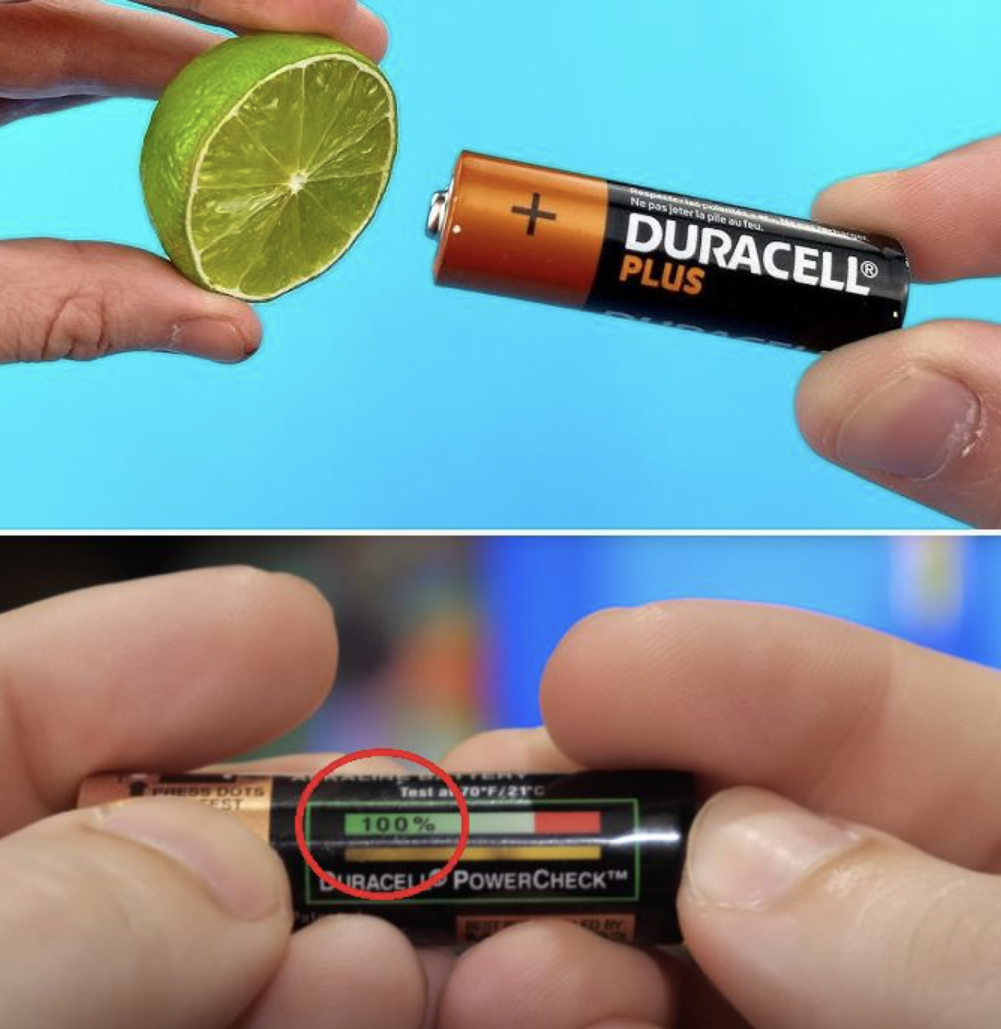In addition to not working, using lemon juice on a battery can pose a real risk. Citric acid, while relatively mild, is powerful enough to cause adverse reactions within the battery.
If you let lemon juice get into a battery, it can cause:
- Accelerated corrosion of internal components, rendering them unusable.
- Leaks of potentially toxic chemicals, harmful to health and the environment.
- Irreversible damage, rendering the battery completely unusable.
In short, instead of reviving your battery, you risk damaging it even more quickly. It’s a bit like trying to relight a lamp with a broken bulb: instead of producing light, you risk injuring yourself.
What to do with a dead battery?
Rather than attempting dubious experiments, it’s best to recycle your used batteries at designated collection points. In France, you’ll find these collection points in most supermarkets, DIY stores, and some town halls.
Recycling helps recover valuable materials and limit the environmental impact of used batteries. It also saves you from handling potentially hazardous products that could leak.
Pouring lemon juice on a dead battery is neither effective nor safe. If your battery is dead, it’s better to buy a new one or opt for rechargeable models , which are much more durable and environmentally friendly.
As you can see, sometimes miracle solutions are nothing more than modern myths. It’s better to rely on proven solutions!
